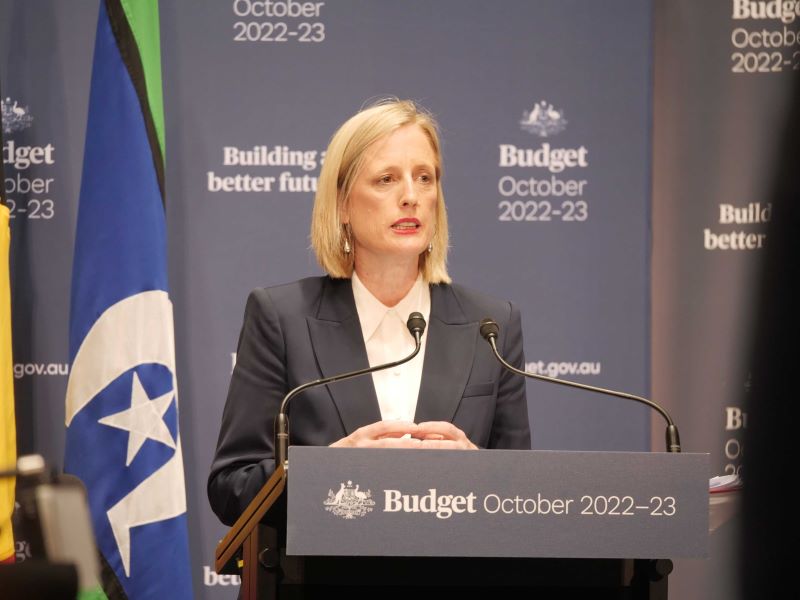The scrapping of controversial Morrison Government industry grants programs will be used to underwrite the establishment of Labor’s $15 billion National Reconstruction Fund, which aims to reshape the economy through co-investments in advanced manufacturing, clean energy, and emerging technologies.
The Department of Industry and the Department of Finance shared $50 million in Tuesday’s budget to get the National Reconstruction Fund (NRF) operations infrastructure up and running over the next two years.
This establishment funding and some of the $15 billion that the NRF will eventually co-invest came from a half-billion-dollar redirection of Coalition government industry funding measures identified in the Albanese Government’s “line by line” spending audit.
The NRF will co-invest in already identified priority areas over seven years from next July, with the Labor government hoping to have underlying legislation introduced by the end of this year.

Tuesday’s budget provided the money to get the NRF started, but Finance minister Katy Gallagher said a careful approach is needed for the $15 billion fund.
“The first thing we need to do is… put the final design on it to get that detail right,” she told InnovationAus.com.
“It’s a big vehicle that we want to use to drive economic growth and support a whole range of industries. Pretty much the first step on that is getting legislation into the parliament to establish that. We’re looking towards the end of this year to get that in.”
A nationwide consultation plan is being developed for the NRF and will include unions, industry and other key stakeholders.
Ms Gallagher’s Finance department will receive $1.2 million to establish the fund, but most of the money is going to the Industry department, which will receive $9 million this year and 34.5 million for 2023/24.
A Labor election commitment, the fund will be used to co-invest in seven “priority areas”. These areas are resources, agriculture, forestry and fisheries, transport, medical science, renewables and low emission technologies, defence capability, and enabling capabilities including critical technologies.
The NRF is being partly funded by a significant claw-back of Coalition spending commitments from the Industry portfolio that total $506.4 million over four years.
Most of this redirection – a $303.3 million – comes from the Coalition’s planned increases to its Modern Manufacturing Strategy, which Labor said was used for pork barreling purposes during the last election campaign in May.
The new government reviewed every grant awarded from the program, ultimately clearing them all. But Labor unsurprisingly won’t continue the Coalition’s planned expansion of the program and has reprioritised any uncommitted funding.
Another $197.7 million will come from uncommitted funding from the controversial Entrepreneurs’ Programme, which the Audit Office found had bias and did not comply with procurement rules.
A further $5 million will come from scrapping a Thermochemical Conversion Technology Trial Facility funded in 2019.
There was limited direct industry support in Labor’s first budget in nearly a decade, with the new government funding the election commitments it made to industry, like $50 million to upgrade the Nyrstar Hobart zinc smelter in Tasmania, $17.2 million to establish a pilot Food Manufacturing Innovation Hub on the Central Coast of New South Wales, and $10 million for an advanced manufacturing facility in Adelaide.
Treasurer Jim Chalmers stressed his first budget was about spending restraint and budget repair.
“It will take more than one budget to clean up what we inherited,” he told reporters.
In a statement, Industry minister Ed Husic said the NRF will revitalise Australian industry.
“The Albanese Government wants our investments to maximise Australia’s natural and competitive strengths and this budget demonstrates our strong commitment to do that,” Mr Husic said.
“We want to unlock the potential of projects in priority areas to capitalise on great Australian know-how.”
Do you know more? Contact James Riley via Email.

